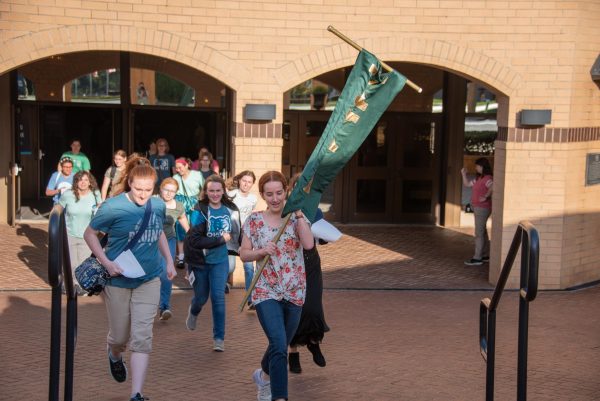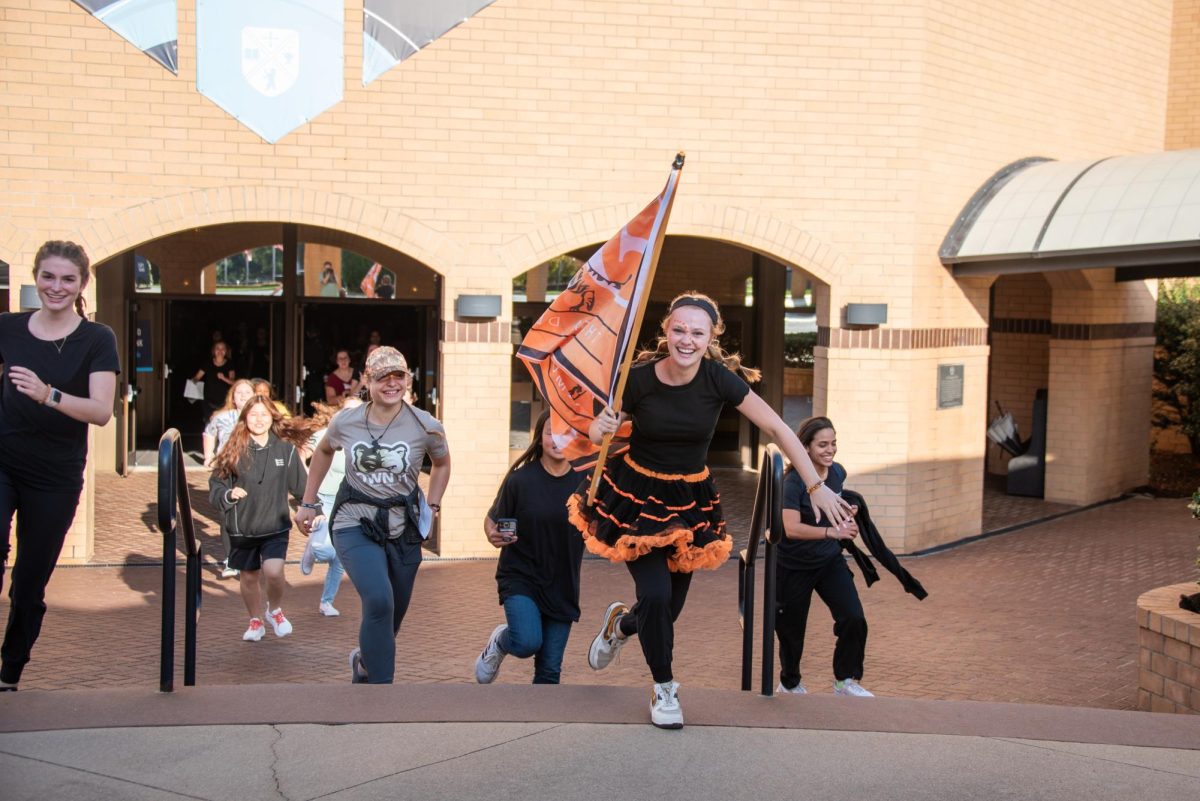The Collegian analyzed statistics gathered about women’s societies during the Fall 2023 semester to look at how size differences impact each society and where society members come from. Here is a sampling of responses to questions based on responses from societies.
Zoe Aletheia Wildcats and Sigma Lambda Delta Duskies
Zoe Aletheia tied with Sigma Lambda Delta Duskies for the largest women’s society with 113 members each, according to statistics provided by BJU Student Life.
Zoe and the Duskies rushed the greatest number of freshmen, tied with 38 new members each.
The Wildcats boast geographically diverse members: survey participants represent twenty-four different states and seven countries. They are united under shared priorities including spiritual growth, community service and building strong friendships.
Over 70% of Wildcats who participated identified their major as related to either education, health and biological sciences, or the arts. Zoe Aletheia is self-described as friendly, loving and fun. As a society, they enjoy prayer, singing, outreach and joint activities with Epsilon Zeta Chi Tornadoes, especially their service trip at Canaan Land, a ministry that serves as a retreat for Chrisitans in full time ministry. The Tornadoes, typically referred to as “Z,” is the second largest men’s society, with 98 members.
Zeta Tau Omega Seagulls
The Zeta Tau Omega Seagulls are a medium-sized society with 40 members. Self-described as chill, genuine and kind, the Seagulls prioritize God, relationships and unity. As a society, they enjoy spending time together and outings, a special favorite being getting boba tea. 63% of Seagulls members reported that they are in majors related to health and biological science.
Theta Mu Theta Bandits
The Theta Mu Theta Bandits possess a statistically large proportion of students from either Michigan or Alabama, with a quarter of survey participants from one of those two states. The Bandits also hold a large proportion of culinary arts majors, criminal justice majors and biological or health science related majors. As a society, they enjoy prayer, sports, joint events and outings, the most popular being ice skating. They describe themselves as chill, loving and diverse.
Chi Theta Upsilon Gators
The Chi Theta Upsilon Gators may be the most diverse women’s society, with nearly a fifth of their members from outside of the United States, and the remaining members from all across the states. Academically, they are equally diverse, representing many different majors among them. They describe themselves as welcoming, fun and loving. They prioritize spiritual growth, outreach, unity and inclusion. Their favorite activities as a society are ice skating, prayer meetings, their nursing home outreach and having lunch together. More than 70% of survey participants described their relationship with their brother society, the Basilean Eagles, as close.
Chi Kappa Delta Dragons
The Chi Kappa Delta Dragons members primarily live close to Bob Jones University, with nearly half of participants from South Carolina, and a quarter from its neighboring states. The Dragons are a tight-knit society who prioritize strong friendships and encouragement. Participants described their society as nerdy, creative, friendly and unique. They enjoy shared interests like books and fandoms, as well as activities, including movie nights, lunches, bonfires and joint events with their brother society, the Bryan Bears. Among the societies who responded, the Dragons reported the highest percentage of members who said they had a close relationship with their brother society.
Alpha Sigma Omicron Ambassadors
The Alpha Sigma Omicron Ambassadors are a close society, unified under common interests and priorities. They described themselves as tight-knit and spiritually-minded. Nearly every Ambassador reported a major related to either music or education. They heavily prioritize service, missions, spiritual growth and relationships. Their favorite activities are prayer, bowling, games and joint outings. 73% of survey participants reported a close relationship with their brother society, the Kappa Sigma Chi Knights.

This data was gathered through sending a survey to each womens’ society. The survey included questions involving students’ major, home state/country, description of their society, favorite activities, relationship with their brothers’ society, etc. The societies were given three weeks to complete the survey between October 11th and November 3rd. A reminder was sent to the societies on October 25th.
























































